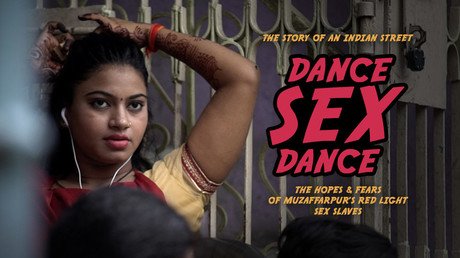Thousands rally in Moscow for freedom of the internet, but RT not let in to the party
A large protest took place in Moscow on Sunday against a bill that has stoked fears of the looming isolation of Russia’s internet. Their cause, freedom of speech, was sullied as organizers blocked all media they “didn’t support.”
The Sunday protest, in central Sakharov Avenue, had been called-for over fears that a draft law regulating autonomous operations of the Russian segment of the internet, which recently passed a first reading in the parliament, will put the World Wide Web under strict state control.
Огромный митинг. И солнышко выглянуло. pic.twitter.com/4vSS2ioUET
— Mikhail Svetov (@msvetov) March 10, 2019
“Russia isn’t Iran or North Korea. We are part of the civilized world,” the Libertarian Party said in a statement in the run up to the rally, which the unregistered party organized. It accused authorities of “doing everything to keep Russia lagging behind the West” and warned that “the web of censorship keeps entwining our lives more and more.”
The authors of the proposed law insist that it’s not about introducing any restrictions; on the contrary, it ensures that Russians will still be able to access the internet, even if the country were disconnected from the Web as part of a Western sanctions policy.
Неушедшие вовремя твиты с фотографиями.14:25 : У сцены сейчас так. Пока музыка и лозунги.Выступления обещают начать минут через 5-10. Перебои со связью. #ПротивИзоляцииРунетаpic.twitter.com/Zqu0FQ0DDX
— #БелыйСчётчик (@WhiteCounter) March 10, 2019
Around 6,500 people took part in the action, greenlighted by the city authorities, according to police estimates. The opposition group the White Counter has, meanwhile, claimed that more than 15,000 were in attendance.
Белый счётчик на 14:30 насчитал уже более 6500 участников митинга на проспекте Сахарова #ПротивИзоляцииРунетаpic.twitter.com/0VLiDx8Hyj
— Robert Petrosyan (@petrosyanrob) March 10, 2019
While the rally went off without incident, a notable and odd detail about it was the “face-control” imposed by the libertarian organizers in the media zone. RT, news agency Life and the Izvestia daily were among the outlets excluded from the event.
#ПротивИзоляцииРунетаpic.twitter.com/yEp3DtBvSY
— Andrei (@Anpururin) March 10, 2019
“People gathered to defend freedom of the internet in Russia, but, ironically, RT wasn’t allowed into this meeting, as organizers told us that we belong to the media that they don’t support,” RT’s Madina Kochenova reported from the scene. Meanwhile, the party’s press-secretary cited their belief in “private discrimination” as the grounds, apparently likening the thousands-strong rally to a private event.
Unfortunately, the liberties-savvy group didn’t do their homework on media affiliations, as the New York-based channel RTVi was also denied access, after being confused with RTTV.
Опять никто не пришёл. Митинг против изоляции рунета. #ПротивИзоляцииРунета#интернетнашpic.twitter.com/jQchCimdtL
— Раша Ван Лав (@neftenezavisimo) March 10, 2019
All the journalists banned from the media zone were graciously offered a chance to provide a copy of their resignation from the blacklisted channels, to be immediately let in. The irony wasn’t lost on RT’s Editor-in-Chief, Margarita Simonyan, who mocked this ‘understanding’ of the freedom of the press on her Telegram channel, saying “And what kind of freedom did you want? We [the Libertarians] don’t have any other freedom for you.”
The Russian Libertarians’ stunt was met with no understanding by their counterparts across the pond. Arvin Vohra, a presidential candidate representing the US Libertarian Party, which, unlike its Russian equivalent, is an official political force in America, described the Russian rally organizers’ actions as biased.
Also on rt.com Russia preparing to be cut off from Internet, but doesn’t want to disconnect – Kremlin“Libertarians recognize that private organizations have the right to refuse service or admission to anyone for any reason,” he admitted, adding, however, that “it doesn't mean that private discrimination is a good idea.”
The best response to any perceived media bias is not “private” or any other form of discrimination, which in this case amounts to de facto censorship, but “open coverage,” the politician told RT.
Similar but smaller protests against the isolation of the Russian internet took place in cities like St. Petersburg and Khabarovsk.
No serious incidents at the Moscow rally have been reported by police. The organizers insisted that at least 15 of their activists were detained before the event and had dozens of blue balloons seized, while 13 other people were detained after the demonstration was over. Two large banners reading “No to censorship” and “We’re against isolation of Russian internet,” as well as the backdrop for the stage, were also removed by police without any explanations, the organizers said.
Think your friends would be interested? Share this story!














